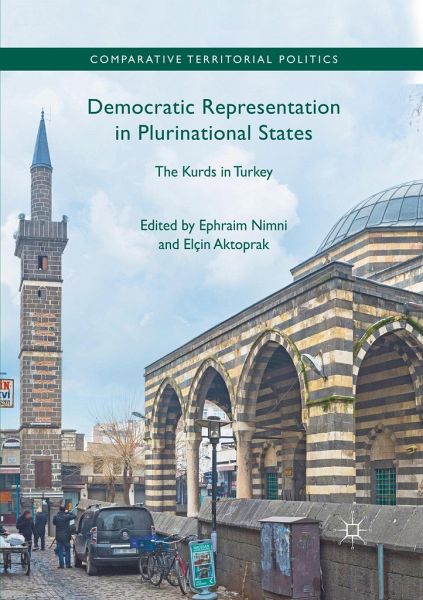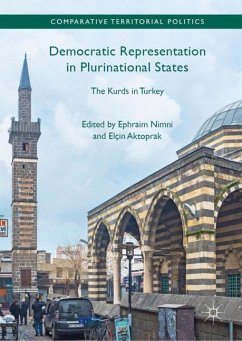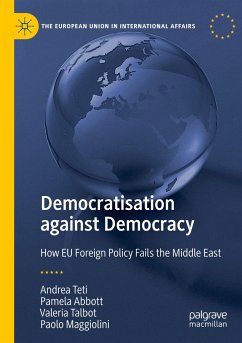
Democratic Representation in Plurinational States
The Kurds in Turkey
Herausgegeben: Nimni, Ephraim; Aktoprak, Elçin
Versandkostenfrei!
Versandfertig in 6-10 Tagen
49,99 €
inkl. MwSt.

PAYBACK Punkte
25 °P sammeln!
This book examines modalities for the recognition and political participation of minorities in plurinational states in theory and in practice, with a specific reference to the Republic of Turkey and the resolution of the Kurdish question. Drawing on the experience of Spain and Eastern Europe and other recent novel models for minority accommodation, including the Ottoman experience of minority autonomy (the Millet System), the volume brings together researchers from Turkey and Europe more broadly to develop an ongoing dialogue that analytically examines various models for national minority acco...
This book examines modalities for the recognition and political participation of minorities in plurinational states in theory and in practice, with a specific reference to the Republic of Turkey and the resolution of the Kurdish question. Drawing on the experience of Spain and Eastern Europe and other recent novel models for minority accommodation, including the Ottoman experience of minority autonomy (the Millet System), the volume brings together researchers from Turkey and Europe more broadly to develop an ongoing dialogue that analytically examines various models for national minority accommodation. These models promise to protect the state's integrity and provide governmental mechanisms that satisfy demands for collective representation of national communities in the framework of a plurinational state.














